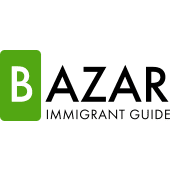In this technology world, most activities are being done online through websites. So with that, there are so many risks that also come with that. That’s now its becomes must…
Total Body Enhancement Review
What is Total Body Enhancement? The “Total Body Enhancement” Machine is a body upgrade corner. Consolidating Red light treatment boards covering the dividers and a stage-based vibration cushion, which vibrates…
Ultimate Web Designing Tricks For Beginners
Any designer knows that it is not enough to design well and be responsible for receiving orders. It is essential to be able to present your work in such a…
Grow Your Business with High Converting Website Design
Gone are the days when you could operate your business without having an online presence. Today, people will find you on the internet before they find you in person. This…
How To Recover Gmail Account Without Email And Phone?
Gmail came into existence in 2004, it is one of the biggest companies with a huge number of users. It is the best email service provider in the world. So…
The Most Beautiful and Amazing Resorts in The Maldives
There’s no replacement for the Maldives as a pleasant honeymoon destination. However, there’s no such mandate that you can’t visit the Maldives for casual traveling purposes. The vast blue sea…
Top-Ranked International Places for Indian Tourists
When it comes to International places for Indian tourists, it is no more just a dream but is cherished for a lifetime. There are plenty of international places for Indian that…
How To Improve Your Inventory Turnover Ratio?
Scaling a manufacturing business requires investments in high-quality equipment, well-trained staff, and automation to increase production and outperform your competition. While investing in high-end machines and automation tools like ERP…
Long-Term Private Tutoring and Its Benefits
You must understand that your child’s education is not just the grades they get or the time spent on homework each night. It takes time for an emotionally-resilient child to…
Digital Marketing Certification that Can Help You Earn More
Digital marketing is a way or method of marketing or promotion of a product of any business through the internet with technologies such as desktop, mobile, laptop, and various other…

